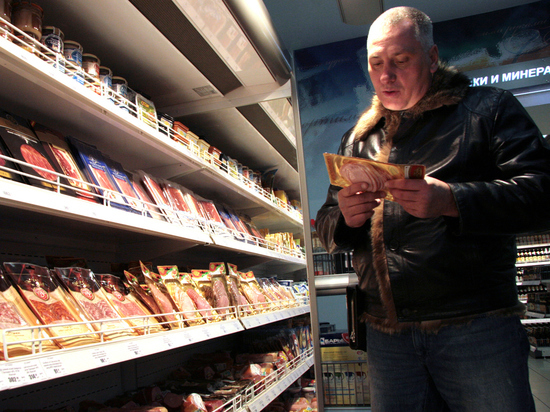Food “delay” will be weeded out by labeling: they will not be allowed to sell
[ad_1]

The expert hoped that expired goods would not end up in stores at all
From February 1, a system will be introduced in test mode in Russia that will track expired products and exclude them from sale using electronic labeling. Several types of dairy products, mineral water and beer were selected to participate in this government experiment. Thanks to the new control scheme, the sale of illegally introduced tobacco products into circulation will also become impossible.
As explained in the commentary of the Cabinet of Ministers, the main task of the innovation is to work out a mechanism for exchanging information about labeled products between outlets and an information system for monitoring the turnover of goods subject to mandatory labeling. “If the experiment is successful, then in the near future, the purchase of illegally put into circulation or expired products will be blocked by cash registers with the appropriate software,” the government release notes. We asked the President of the Union of Consumers of Russia, Petr Shelishch, to evaluate the innovation.
– Of course, this is the right thing to do, – says the interlocutor of “MK”. – The function of identifying “delays” would fully justify, fill with meaning the introduction of mandatory digital labeling of food products. Let me remind you that the labeling of each product costs 60 kopecks, which are included in the retail price. A couple of years ago, the Association of Retail Companies (which unites all federal food chains – MK) raised the issue of including expiration date information in this special identifier. But at the time, the government-approved operator of the labeling system strongly opposed this. They cited technological difficulties and additional financial costs.
– And how did you manage to “break through” the idea in the end?
– The authorities themselves understand that it is in this particular case that mandatory digital marking will be useful. After all, if the buyer takes an expired product from the shelf and brings it to the checkout, when scanning the digital code, a signal will appear, meaning that the product is expired and cannot be sold. But I would like more: so that such goods do not fall on the counter at all. And so that the store employee is informed in advance (and preferably in the warehouse, in the back room of the outlet) about the expiring (say, in three days) expiration date. Ideally, such products could be donated to charitable organizations for distribution to those in need. This would be very supportive of people whose incomes are below the subsistence level. After all, if we subtract the obligatory costs for housing and communal services (even with subsidies), public transport, and communication fees from the subsistence level, then an average of 250 rubles a day will remain for food.
I also note that the expiration date expires not only on the shelves and in the back rooms of stores, but also in the warehouses of enterprises that produce these products. Not all of them are in demand. The conveyor works continuously, constantly producing something. And if, say, some stores reduced the order under supply agreements, someone refused the order, and someone closed altogether, then the products cannot be attached anywhere and they have to be disposed of.
– Why is the range of goods participating in the government initiative turned out to be so narrow? Why was it not included, for example, meat products?
– In this I see a purely technological reason. After all, we are only talking about an experiment so far: we need to test the mechanism, see how it will function so that there are no delays, queues at the checkout with each product. We need to develop the technology itself. The marking system operator will have to expand the information contained in the digital marking. In this story, one thing surprised me – why did you need a whole decree of the Cabinet of Ministers? It would be enough for a command from the relevant ministry to the operator to test this system on a contractual basis with retailers.
[ad_2]
Source link






